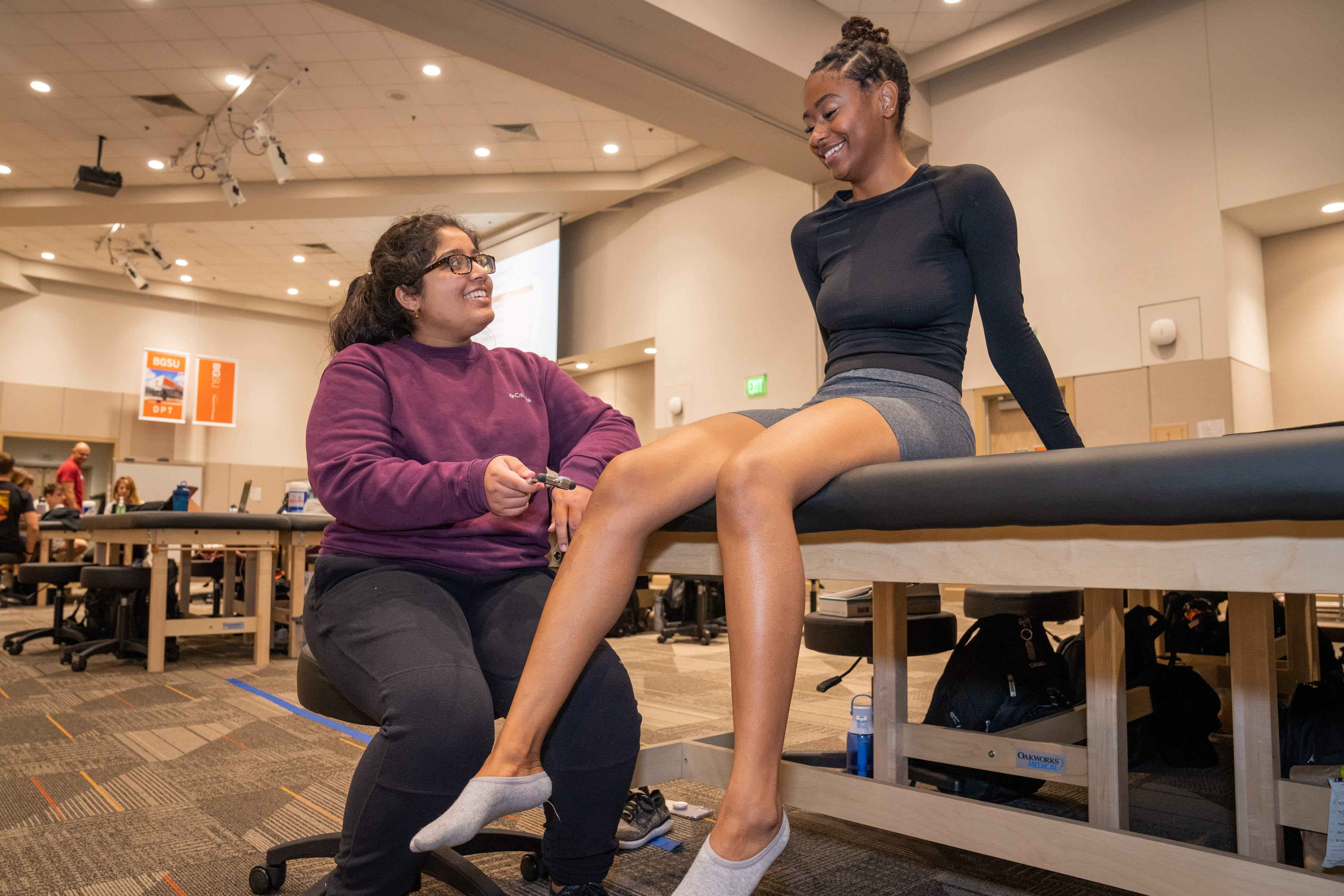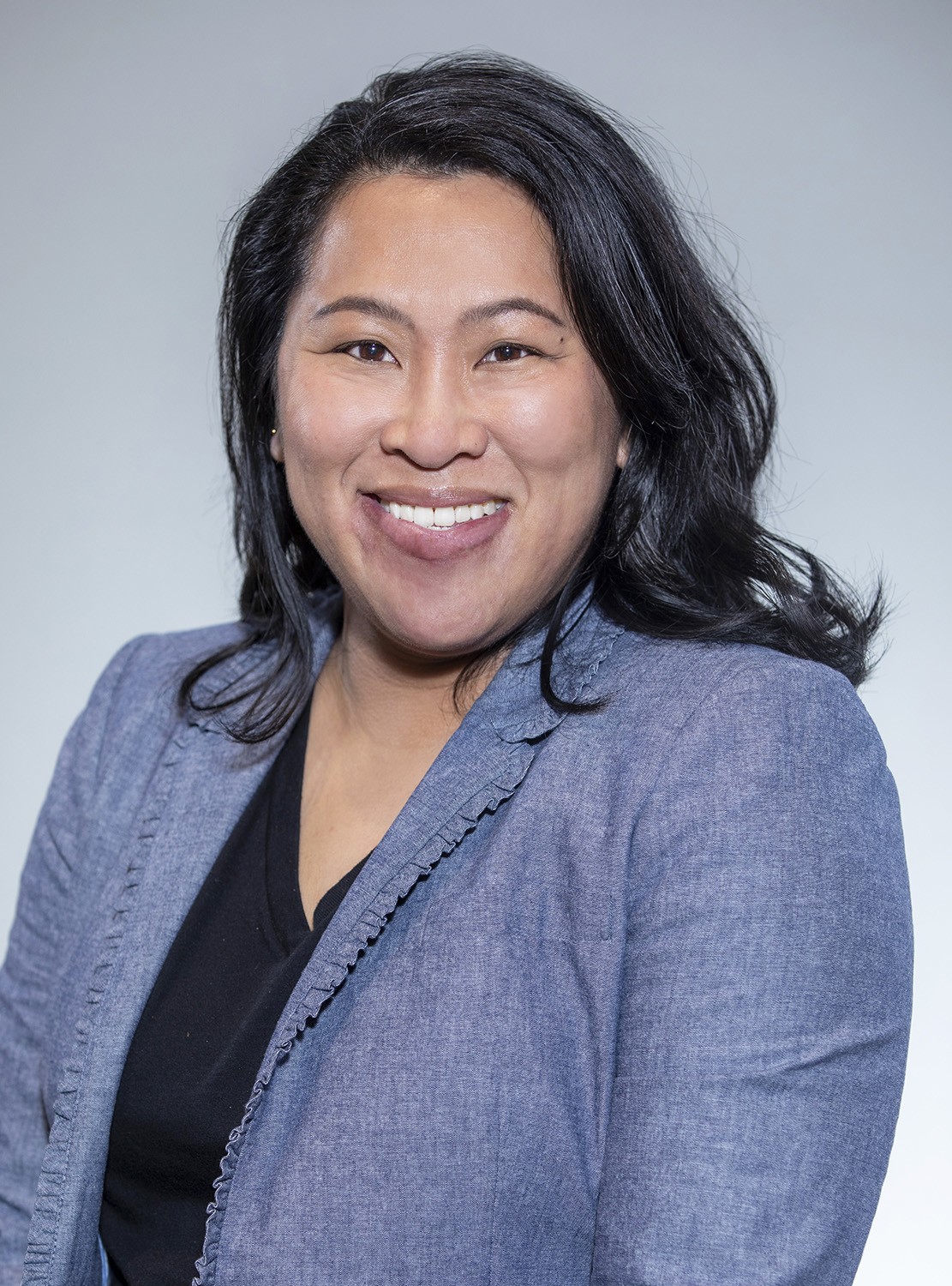
BGSU research nationally recognized for efforts in diversifying the physical therapy workforce
Estimated Reading Time:
Dr. Melissa Yeung, director of student support and belonging in the School of Physical Therapy, received the Stanford Award from the American Physical Therapy Association

By Laren Kowalczyk ‘07
A director of student support and belonging in the Bowling Green State University School of Physical Therapy recently garnered national recognition for her research on the obstacles underrepresented students face in the physical therapy admissions process and its effects on the profession.
Dr. Melissa Yeung received the prestigious Stanford Award from the American Physical Therapy Association (APTA) Academy of Education for her research titled “Experiences of Underrepresented Racial Minorities in the Entry-Level Physical Therapy Application Process: A Conceptual Framework.”
The Stanford Award recognizes the most influential educational ideas published in the Journal of Physical Therapy Education during a calendar year.
“This award further validates that the work we’re doing is important and that we need to continue amplifying the voices of underrepresented students to help create a more diverse physical therapy workforce,” Yeung said.
The research was also pivotal in shaping the admissions process for the BGSU Doctor of Physical Therapy program, which launched in Fall 2022 as Ohio’s first and only accelerated, hybrid DPT program. The program’s first cohort was among the most diverse within physical therapy education in the U.S., representing the University’s commitment to increasing diversity in the field.
Multi-year national study
During the multi-year national study, Yeung interviewed Black and Latinx students in the first year of their physical therapy education programs. According to the APTA, Black and Latinx people are among the most underrepresented populations in the profession, making up a combined 12.6% of physical therapists in 2021.
Yeung interviewed each participant three times, focusing on their exposure to the field, the barriers they faced when applying to physical therapy programs and how race and ethnicity may have influenced their experiences.
Participants shared that a lack of representation in the field contributed to anxiety about the admissions process. There also was reluctance to seek help during the process out of fear of reinforcing a stereotype of academic inferiority.
“One of the most striking responses I received during my research was a participant admitting that they would rather struggle than be in a situation where they didn’t feel welcome or accepted,” Yeung said.
“It brought to light some of the systemic issues that minoritized students experience as undergrads that can significantly affect their futures. It can create barriers to access, further perpetuating underrepresentation in the field. ”
Yeung said the complexity of a program's application process was cited in interviews, with participants using terms like “overwhelming,” “time-consuming” and “feeling lost” when describing applying to physical therapy programs.
Creating a framework
Based on the themes that emerged throughout the study, Yeung developed a framework identifying the experiences of Black and Latinx students to help improve the recruitment process and increase support through the application and admissions process.
Using the findings, Yeung and her colleagues developed a transparent admissions process in the BGSU School of Physical Therapy that accounts for the experiences of people from all socioeconomic and racial backgrounds.
Yeung said they acknowledge that numerous factors can determine a student’s ability to succeed in a physical therapy program so each student’s unique undergraduate experiences are taken into consideration during the process.
“We took a lot of lessons from the research and have applied them to our admissions and recruitment process because we recognize that equitable access and opportunity doesn’t exist for everyone,” Yeung said. “The communities we serve are diverse, and we must continue attracting and supporting diverse applicants to create a more diverse workforce.”
Related Stories
Media Contact | Michael Bratton | mbratto@bgsu.edu | 419-372-6349
Updated: 11/14/2024 12:11PM




